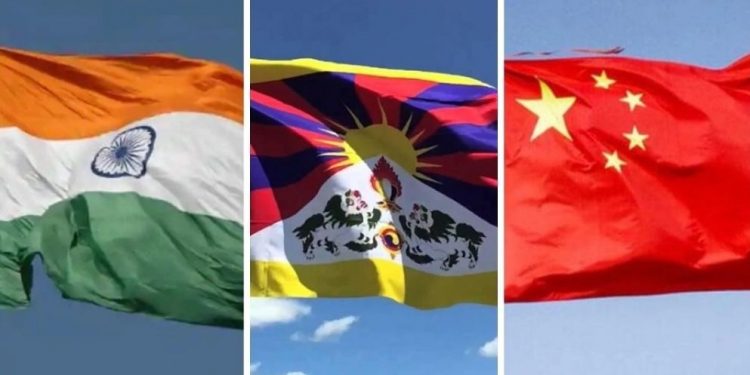Kolkata: China’s People’s Liberation Army (PLA) is for the first time forming exclusive military formations manned by ethnic Tibetans.
India’s external and military intelligence officials told IANS that senior PLA officials are touring specific areas of Tibet to raise the Tibetan-only force.
But they said that most of the recruits are mixed Tibetans — mostly children of Tibetan mothers and Han Chinese fathers or otherwise.
Most of them are children of ex-PLA Han Chinese soldiers who got married to Tibetans, intelligence officials said.
PLA officers based in Lhasa have been to Ngari Prefecture in the far west of Tibet Autonomous Region (TAR) and then to the border county of Zanda or Tsamda County to recruit for the Special Tibetan Army Unit.
The recruitment rallies began in February and are still continuing.
“It is a fairly long process because the security vetting process after the initial selection on the basis of a tough physical and IQ test is very extensive,” said an intelligence official monitoring the process.
He said the Chinese authorities are keen to ensure that no anti-Beijing Tibetan sneaks into the force.
“So not only are Tibetan localities with a history of protest against Beijing’s rule scrupulously avoided, but past records of individual recruits even in the most secure places are screened extensively,” the official said, but on condition of anonymity for obvious reasons.
The PLA also carried out a phased recruitment drive in Lhasa to induct many Tibetans.
The plan is to raise a four battalion force initially for special operations on the lines of India’s secretive Tibetan force, the Special Frontier Force or SFF.
The SFF was raised in 1960s by Major General Sujan Singh Uban, a legendary expert in irregular warfare, for special operations inside Tibet in the event of a conflict with China.
During last year’s Ladakh standoff, the SFF commandoes unleashed take-and-hold operations on some unoccupied heights around Pangong Tso which finally forced the Chinese to settle on a mutually agreed pullback.
The SFF’s success and the ease with which these Tibetans negotiated the icy heights on the Himalayas convinced PLA commanders they would do better than Han Chinese troops.
“These new recruitment drives are happening because units with Han Chinese troops are suffering serious health problems such as severe mountain sickness and high altitude pulmonary edema,” said an Indian medical service expert in high altitude sickness.
According to PLA Daily, China’s military has framed guidelines to help troops serving in Tibet save themselves from altitude sickness.
In the 2 million plus PLA, only 3,000 to 4,000 Tibetans serve at the moment.
“So this recruitment is significant,” said Lt Gen J.R. Mukherjee, former Chief of Staff in India’s Eastern Army.
He told IANS the Chinese have been looking to recruit both Tibetans and Nepali Gurkhas.
“They have failed to get Gurkhas because they are tied to the Indian army for historical and emotional reasons, so they have to find Tibetans because an average Chinese soldier cannot match our boys in the high Himalayas physically,” Mukherjee said.
IANS






































